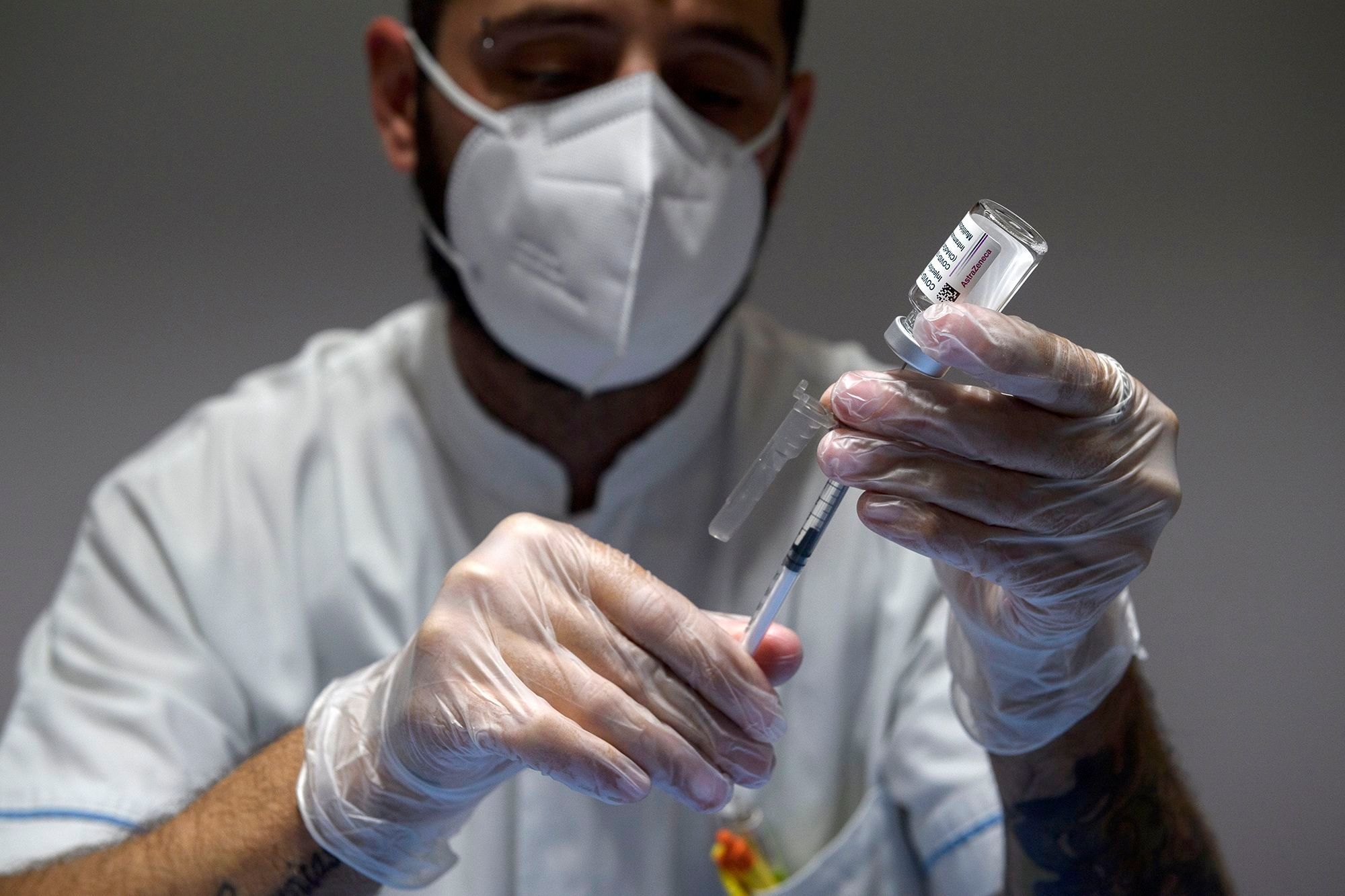AstraZeneca is withdrawing its highly successful coronavirus vaccine, citing the availability of a plethora of new shots that has led to a decline in demand.
London (CNN) — AstraZeneca is withdrawing its highly successful coronavirus vaccine, citing the availability of a plethora of new shots that has led to a decline in demand.
The vaccine — called Vaxzevria and developed in partnership with the University of Oxford — has been one of the main Covid-19 vaccines worldwide, with more than 3 billion doses supplied since the first was administered in the United Kingdom on January 4, 2021.
But the vaccine has not generated revenue for AstraZeneca since April 2023, the company said.
“As multiple, variant Covid-19 vaccines have … been developed, there is a surplus of available updated vaccines. This has led to a decline in demand for Vaxzevria, which is no longer being manufactured or supplied,” it said in a statement shared with CNN Wednesday.
“AstraZeneca has therefore taken the decision to initiate withdrawal of the marketing authorizations for Vaxzevria within Europe,” it added.
In a notice on its website, the European Medicines Agency also announced the withdrawal, which means that Vaxzevria is no longer authorized to be marketed or sold in European Union countries.
AstraZeneca said it would work with regulators in other countries to “align on a clear path forward,” including withdrawing marketing authorizations for the vaccine where no future commercial demand is expected.
“We are incredibly proud of the role Vaxzevria played… Our efforts have been recognized by governments around the world and are widely regarded as being a critical component of ending the global pandemic,” AstraZeneca said.
Dr Michael Head, a senior research fellow in global health at the University of Southampton in England, said the likely key reason for the withdrawal was the fact that other Covid vaccines, including the messenger RNA (mRNA) vaccines from Pfizer and Moderna, were “essentially better products.”
The newer mRNA vaccines use genetic material to instruct cells to make the coronavirus spike protein, which in turn causes the body to create antibodies to combat an actual Covid infection. AstraZeneca’s Covid shot uses a cold virus common to chimpanzees as a viral vector to carry the spike protein from the coronavirus into cells.
“AstraZeneca is very good, but the mRNA products… are better,” Head said. “They have higher effectiveness and the mRNA platforms are more easily adapted towards the latest Covid variants. Thus, they form a key part of most countries’ longer-term strategies.”
Rocky road to pandemic success
The UK-based pharmaceutical firm, known for its popular cancer drugs, entered the Covid-19 crisis with little experience developing vaccines. And the success of Vaxzevria was far from guaranteed.
Soon after the rollout began, the company came under fire from policymakers and health officials in Europe and the United States for various missteps, including mistakes during clinical trials and omitting crucial information from public statements. Production delays also strained relations with EU leaders.
In April 2021, information on the vaccine was updated by medicines regulators in the EU and the United Kingdom to include a mention of a dangerous blood clotting condition as a possible, though rare, side-effect. UK regulators said at the time that healthy adults under 30 should be offered other vaccines as, for them, the risks of Vaxzevria were greater than the risks of severe illness from Covid-19.
AstraZeneca overcame these setbacks, selling almost $4 billion worth of Vaxzevria worldwide in 2021, according to its earnings statements. The company initially sold the vaccine at cost but said in late 2021 that it expected to start seeing “modest” profits from the vaccine (AstraZeneca does not report product-specific profit figures). Last year, Vaxzevria sales totaled just $12 million.
The company is facing a class action lawsuit in the UK brought by law firm Leigh Day on behalf of 51 claimants due to injuries allegedly caused by Vaxzevria. Twelve of the claimants are acting on behalf of a loved one who died following a complication allegedly caused by the vaccine, related to the blood clotting issue.
Asked about the court case, an AstraZeneca spokesperson said: “Our sympathy goes out to anyone who has lost loved ones or reported health problems… From the body of evidence in clinical trials and real-world data, the AstraZeneca-Oxford vaccine has continuously been shown to have an acceptable safety profile, and regulators around the world consistently state that the benefits of vaccination outweigh the risks of extremely rare potential side-effects.”
This story has been updated with additional information.
The-CNN-Wire
™ & © 2024 Cable News Network, Inc., a Warner Bros. Discovery Company. All rights reserved.








